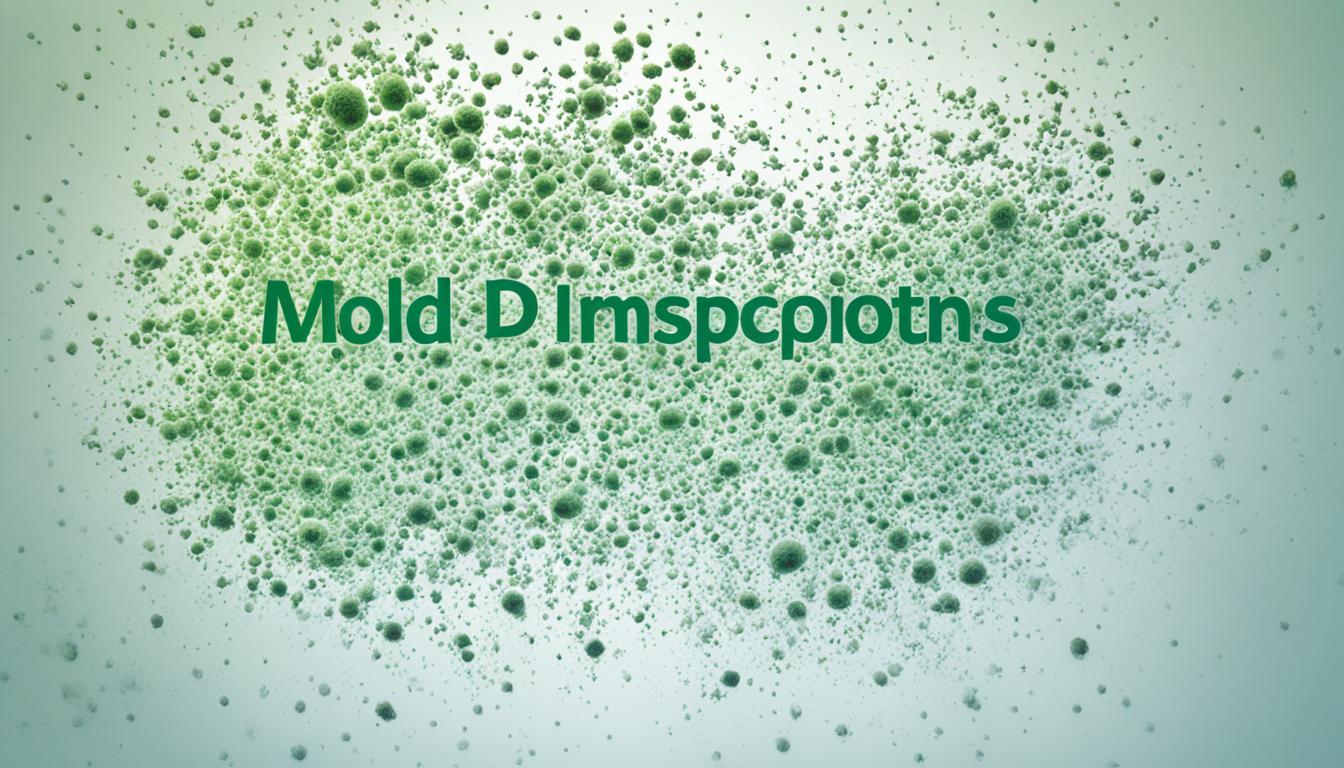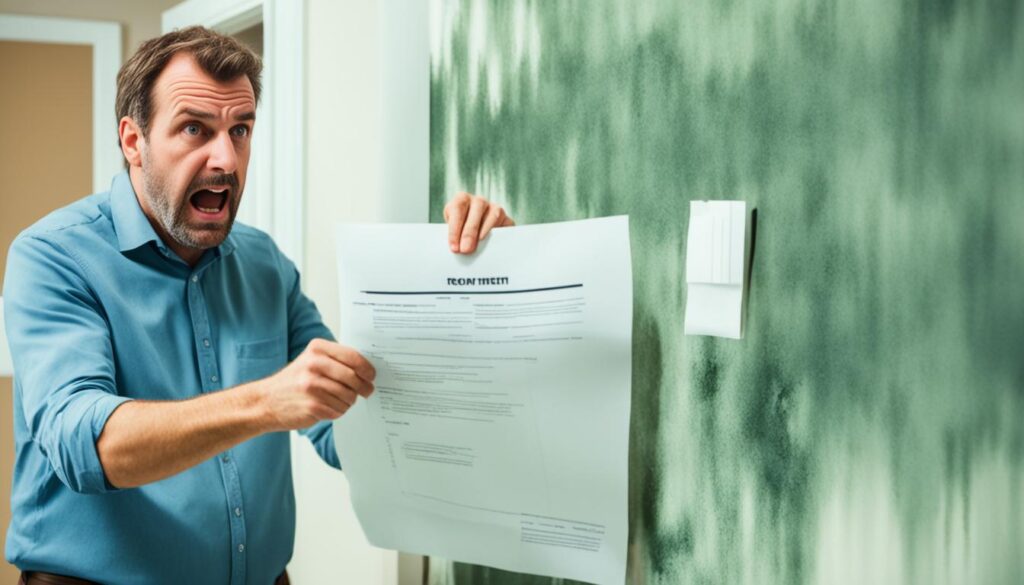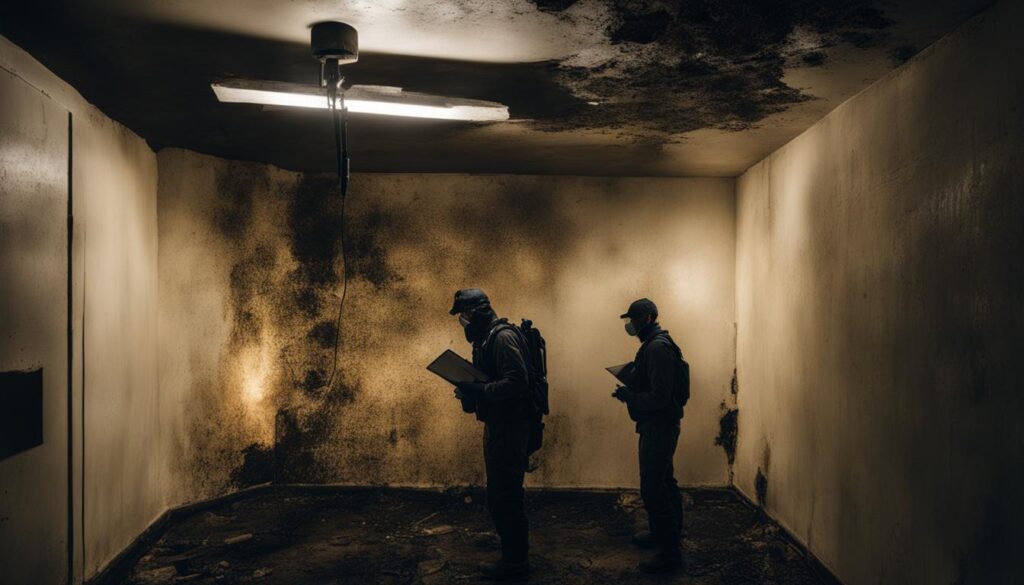
Tenant Mold Inspection Rights When Feeling Ill
If you’re a tenant and experiencing health concerns in your rental property, it’s crucial to be aware of your rights regarding mold inspection. Mold can have a significant impact on indoor air quality and your overall well-being, making it essential to take proactive measures to protect yourself.
In this article, we will guide you through the process of tenant mold inspection, empowering you with the information you need to ensure a healthy living environment. We will explain your rights as a tenant, discuss the importance of mold assessment, and provide guidance on taking necessary actions if mold is detected.
Understanding the Impact of Mold on Health
Exposure to mold can have significant health effects on individuals, leading to a range of symptoms and even contributing to the development of sick building syndrome. Recognizing the potential implications of mold exposure is essential for tenants who suspect mold in their rental properties.
The Symptoms of Mold Exposure
Mold exposure can manifest in various symptoms, affecting individuals differently. Common mold exposure symptoms include:
- Allergies, such as sneezing, runny nose, and watery eyes
- Coughing and throat irritation
- Wheezing and difficulty breathing
- Skin rashes or hives
- Headaches and migraines
- Fatigue and weakness
- Frequent sinus infections
It’s important to note that the severity of symptoms may vary depending on an individual’s sensitivity to mold and the duration and intensity of exposure.
The Significance of Sick Building Syndrome
Sick building syndrome is a term used to describe a condition where occupants of a building experience various symptoms linked to their time spent indoors. Mold contamination is often a significant contributing factor to sick building syndrome.
Common symptoms associated with sick building syndrome include:
- Respiratory problems
- Headaches
- Fatigue
- Dizziness
- Difficulty concentrating
- Irritated eyes, nose, or throat
“Sick building syndrome emphasizes the importance of addressing potential mold issues promptly to safeguard the health and well-being of tenants,” says Dr. Sarah Thompson, a renowned environmental health expert.
Understanding the impact of mold on health empowers tenants to take action when experiencing symptoms or suspecting mold in their rental properties. Timely mold inspection and remediation can help create healthier living environments for tenants and prevent the potential development of sick building syndrome.
Tenant Rights for Mold Inspection
Tenants have the right to ensure a safe and healthy living environment. When it comes to concerns about mold and its potential impact on their health, tenants have specific rights that protect them. Understanding these rights is crucial for tenants to address and resolve mold issues in their rental property.
Tenant’s Right to a Mold Inspection
Tenants have the right to request a mold inspection if they suspect the presence of mold in their rental property. Mold inspection is an essential step in identifying and assessing mold growth, ensuring the well-being of tenants and the overall indoor air quality. It is essential to be aware of the legal framework that supports tenant rights for mold inspection.
“Tenants are entitled to a safe and habitable dwelling. Mold growth can pose significant health risks, and tenants have the right to request a mold inspection to protect their health and well-being.”
Exercising Tenant Rights for Mold Inspection
When tenants suspect mold in their rental property, they should take the following steps to exercise their rights for a mold inspection:
- Document and gather evidence: Keep a record of any visible mold growth, water leaks, or musty odors in the rental unit. Take photos or videos to document the condition.
- Notify the landlord: Inform the landlord or property management company about the mold concern in writing. Be sure to include the details of the issue, any health symptoms experienced, and a request for a professional mold inspection.
- Request a professional mold inspection: If the landlord does not respond within a reasonable time frame or denies the request, tenants can contact the local health department or seek legal advice to enforce their rights.

By understanding their rights and taking prompt action, tenants can ensure that their rental property is free from mold and provides a healthy living environment. However, it is crucial to consult local laws and regulations to determine the specific rights and obligations of tenants and landlords in their jurisdiction.
The Importance of Indoor Mold Assessment
When it comes to ensuring a healthy living environment, a thorough indoor mold assessment is of utmost importance. Mold can pose significant risks to both the physical health and indoor air quality of tenants in rental properties. Identifying and addressing mold contamination promptly is crucial to mitigate these risks and maintain a safe living space.
But what exactly is an indoor mold assessment? It is a comprehensive process conducted by professionals to determine the presence and extent of mold within a property. One of the key components of an assessment is mold testing.
Mold testing involves collecting samples from different areas of the property to analyze them for the presence of mold spores. These samples are then sent to a laboratory for testing, where experts conduct various analyses to identify the types and concentration of mold present. This information helps in assessing the extent of mold contamination and developing an appropriate remediation plan.
During an indoor mold assessment, professionals also visually inspect the property, looking for visible signs of mold growth, water damage, or moisture issues. They use specialized equipment, such as moisture meters and thermal imaging cameras, to detect hidden moisture sources that may contribute to mold growth.
An indoor mold assessment provides tenants with valuable information about the mold situation in their rental property. It helps them understand the scope of the problem and the potential risks they may be facing. Armed with this knowledge, tenants can take appropriate actions to protect their health and well-being.
By investing in an indoor mold assessment and mold testing, tenants can ensure that any mold issues in their rental property are identified and addressed promptly. This proactive approach not only safeguards their health but also helps prevent the spread of mold contamination to other areas of the property.
The Role of Professionals in Indoor Mold Assessment
It is important to note that indoor mold assessment and testing should be carried out by qualified professionals who have the necessary expertise and equipment. Professionals experienced in mold assessment follow industry standards and guidelines to ensure accurate results and reliable recommendations.
Their expertise allows them to identify areas of concern, assess the potential risks, and provide guidance on effective remediation strategies. Additionally, professionals can also help tenants understand their rights and navigate the process of requesting a mold assessment from their landlords or property managers.
By entrusting the assessment to professionals, tenants can have confidence in the accuracy of the results and the reliability of the recommendations provided. This professional involvement contributes to a thorough and comprehensive mold assessment process, leading to a healthier living environment.
Remember, when it comes to indoor mold assessment, proactive measures are key. By taking the necessary steps to assess mold contamination in a rental property, tenants can ensure their health and well-being are protected. Let’s explore the actions tenants can take if mold is detected during the assessment in the next section.

Taking Action: Mold Remediation
If mold is detected during the indoor mold assessment, it is crucial for tenants to take immediate action to ensure a safe and healthy living environment. Mold remediation is the process of removing mold and addressing the underlying causes to prevent its recurrence.
To effectively address the mold issue, tenants should consider the following steps:
- Notify the landlord: Inform your landlord about the mold problem as soon as possible. Document the communication and provide any evidence, such as photographs or videos, to support your claim.
- Seek professional assistance: Hire a reputable mold remediation company to assess the extent of the mold contamination and develop a remediation plan. They will use advanced techniques and equipment to safely remove the mold and restore the affected areas.
- Follow recommended remediation procedures: During the mold remediation process, it is important to follow the instructions provided by the professionals. This may include temporarily vacating the premises, sealing off affected areas, and using containment measures to prevent the spread of mold spores.
- Address the underlying issue: Mold growth is often a sign of moisture or water intrusion problems. It is essential to identify and address the source of moisture to prevent future mold growth. This may involve fixing leaks, improving ventilation, or repairing damaged plumbing.
- Monitor and maintain: After mold remediation, regular monitoring is necessary to ensure the effectiveness of the remediation process and prevent mold from reoccurring. Keep an eye out for any signs of mold growth, such as musty odors or visible mold, and promptly address any issues that arise.
Remember, mold remediation should always be carried out by trained professionals to ensure safe and effective results. By taking swift action and following proper remediation procedures, tenants can protect their health and create a mold-free living environment.
| Step | Description |
|---|---|
| Notify the landlord | Inform your landlord about the mold problem as soon as possible. Document the communication and provide any evidence, such as photographs or videos, to support your claim. |
| Seek professional assistance | Hire a reputable mold remediation company to assess the extent of the mold contamination and develop a remediation plan. They will use advanced techniques and equipment to safely remove the mold and restore the affected areas. |
| Follow recommended remediation procedures | During the mold remediation process, it is important to follow the instructions provided by the professionals. This may include temporarily vacating the premises, sealing off affected areas, and using containment measures to prevent the spread of mold spores. |
| Address the underlying issue | Mold growth is often a sign of moisture or water intrusion problems. It is essential to identify and address the source of moisture to prevent future mold growth. This may involve fixing leaks, improving ventilation, or repairing damaged plumbing. |
| Monitor and maintain | After mold remediation, regular monitoring is necessary to ensure the effectiveness of the remediation process and prevent mold from reoccurring. Keep an eye out for any signs of mold growth, such as musty odors or visible mold, and promptly address any issues that arise. |
Conclusion
In conclusion, when tenants feel sick and suspect mold in their rental property, it is crucial to prioritize prompt mold inspection. Mold can have a significant impact on the health and well-being of individuals, leading to symptoms such as respiratory issues, allergies, headaches, and fatigue. By addressing the issue early on, tenants can protect themselves and ensure a healthy living environment.
If you are a tenant in Miami facing mold-related concerns, look no further than Fix Mold Miami. As a trusted resource for mold assessments, prevention, and remediation, they have a proven track record of providing effective solutions. Their team of experts is equipped with the knowledge and tools to identify and address mold issues comprehensively.
Don’t hesitate to reach out to Fix Mold Miami at 305-465-6653. They will assist you in scheduling a mold inspection and assessing the severity of the problem. Remember, taking action and seeking professional assistance is key to maintaining a mold-free and healthy living space.




